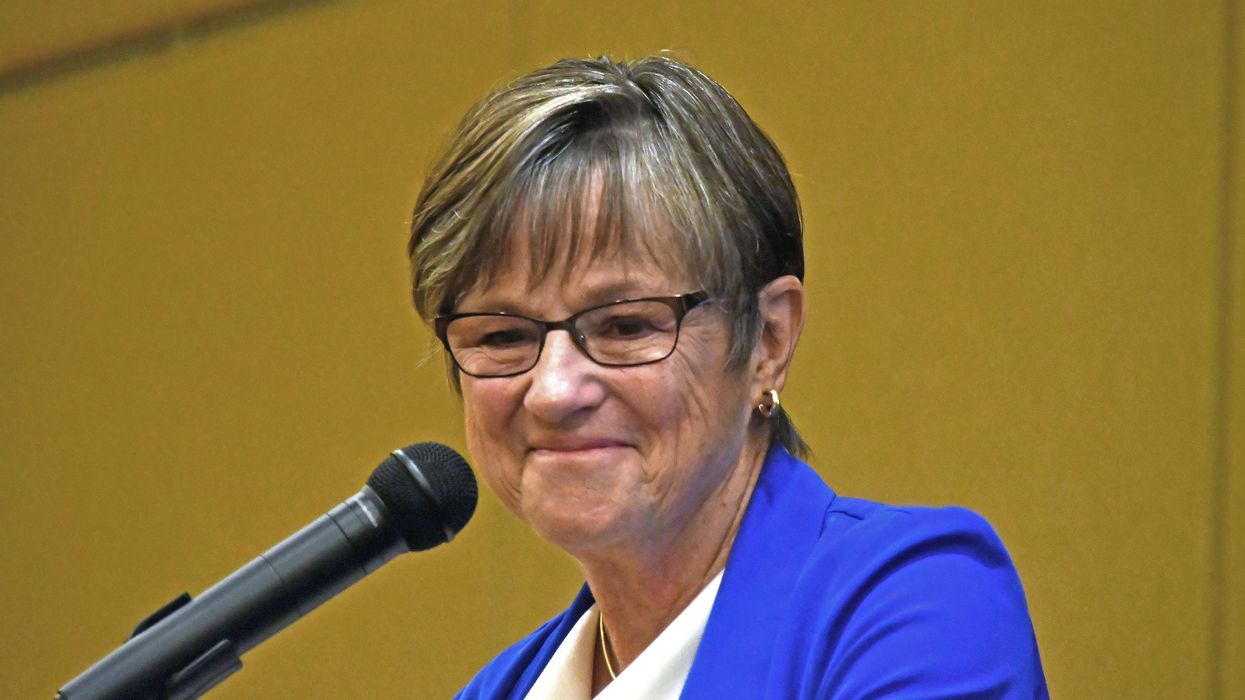The sprawling Republican effort to make voting more difficult has been derailed for the first time by a Democratic governor.
Laura Kelly of Kansas has vetoed two bills, one curbing the number of ballots third parties may collect and deliver and the other giving the Legislature total control over election rules. Both were drafted in response to developments in other states last year — decisions by courts and governors to ease access to the ballot during the pandemic, and Donald Trump's baseless claims that widespread fraud had robbed him of a second presidential term.
The measures now return to the capital, where both have more than enough support for a veto override in the Senate but appear to be a handful of votes short of the necessary two-thirds majority in the House. Kansas' 2021 legislative session lasts three more weeks.
While Georgia has been the focus of this year's intense nationwide fight over election legislation, in part because it was one of the purple states key to President Biden's win, the battle is also being fought in plenty of states Trump carried — with new curbs already enacted in Iowa and Montana and steadily advancing in Texas and Florida.
But the GOP holds all the levers of lawmaking power in all of them. Kansas is one of eight states with Democratic governors and Republican statehouses. Biden took 42 percent there last fall, only the sixth time since World War II when the Democratic nominee got more than two of every five votes.
This got the state's GOP agitated and fueled conspiracy theories — many about cheating at the hands of so-called "ballot harvesters" — that Republican Secretary of State Scott Schwab has labored to tamp down. He says voting in 2020 was "free and fair."
One of the vetoed measures would take Kansas off the roster of 26 states that permit voters to entrust anyone they like to deliver their completed absentee ballot. Both political parties and various campaign organizations use such laws to collect envelopes from sympathetic voters — mainly the elderly, poor and disabled as well as people living in remote areas such as Indian reservations.
But Republicans, fueled by Trump, have turned against the practice with a vengeance in recent years, arguing without much evidence that it encourages fraud. (The biggest such case of cheating, by far, involved a 2018 GOP congressional campaign in North Carolina.) The Supreme Court is now deliberating whether Arizona's curbs on third-party collection amounts of racially discriminatory voter suppression.
The Kansas bill would limit to 10 the number of ballots anyone could deliver, and also stiffen signature-match requirements on mail-in forms.
"Although Kansans have cast millions of ballots over the last decade, there remains no evidence of significant voter fraud," the governor said in a statement on Friday. "This bill is a solution to a problem that doesn't exist. It is designed to disenfranchise Kansans, making it difficult for them to participate in the democratic process, not to stop voter fraud."
The other bill she vetoed would prevent her from changing election laws or procedures by executive order, and would bar the secretary of state from negotiating any settlements of election-related lawsuits without approval from the Legislature. But Kelly decreed no such alterations to voting procedures in 2020 and none were mandated in the state by the courts — putting Kansas in a distinct minority of just 16 states where neither thing happened in response to the Covid-19 crisis.
In her veto message, Kelly warned such a law could imperil the business climate in the state, as more and more companies have spoken out this spring against legislation that would curb ballot access.
The bill would respond, however, to the most prominent recent case of election malfeasance in Kansas, by requiring a brick-and-mortar residential address for all registered voters. The congressional career of Republican Steve Watkins came to an abrupt end after one term in 2020, partly after it was revealed he'd listed his home as a UPS store so he could vote illegally for a friend running for the city council in Topeka.
Kelly is running for a second term but is seen as one of the most electorally vulnerable governors in 2022.




















